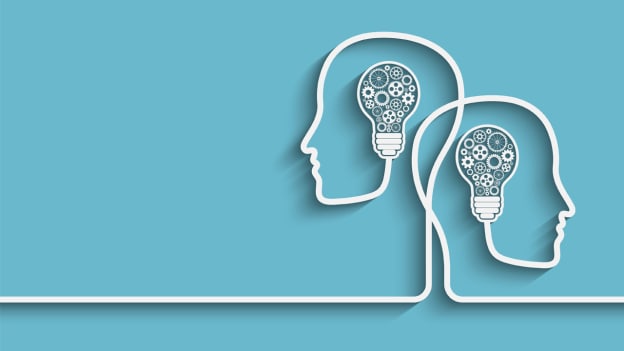From employee value proposition to talent experience

Talent management is fast being replaced by a new concept- the talent experience. This is in alignment with the shifting nature of the workforce. We are seeing the rise of “self-managed” workforce, and not just HR and supervisors needing to “manage” talent. Naturally, employees must have access to platforms that help them manage their own talent experiences. The centralization-concept of the “employer value proposition being doled out to employees by a few HR personnel”, shall soon lose face. The new generation of employees i.e. the millennials, want to be empowered and enriched and are demanding independent, accessible and intelligent talent-systems that enable them to do exactly that. It is the latest HR technology that shall form the foundation of this new Talent Experience paradigm. A shift from EVP to Talent Experience is not just about leveraging the right HR Tech platforms. It encompasses an entirely new way of thinking, where the employee is at the fulcrum of all talent practices.
Why create the Talent Experience?
Today, people want to control their “experiences” in their personal and professional lives. In fact, the young population is preferring “experiences” over “belongings”, and have little tolerance for poor experiences. If a person does not find an app useful, he or she immediately deletes it and switches to the next best app offering a better experience. Even in the workplace, employees are looking for intuitive, useful and meaningful interactions and experiences, with people, systems and the organization at large. HR must wake up to this new reality. Employees are no longer comfortable being “fed” a carefully curated employer value proposition (EVP) through a one-time designed talent management system. Employees themselves want to hear, see, feel and experience the betterment of their work, life, and careers by taking the reins in their own hands. Unveil- the age of Talent Experience Systems- the new-age platforms driven by cutting-edge HR technology, developed and delivered by experimental start-ups, and placing power in the hands of the people.
How to create the right Talent Experience?
HR leaders must rethink the talent model on a strong base of HR technology. The core HR platforms and talent management systems shall continue to be the base, but the employee-facing talent experience systems is what shall pave the way ahead for progressive organizations. HR must study and pioneer the latest HR technologies- Virtual Reality, Augmented Reality, Artificial Intelligence and Machine Learning, Gamification, Mobile-first approach, and chatbots-communication, to name a few. Moving away from such complex jargon, a successful talent experience stems from simplicity and productivity, and an endeavor to support employees’ talent lifecycles across critical career milestones. A high degree of innovation in design-thinking at the HR end is imperative to make this happen. Here’s how:
- Make on-demand learning available: Futuristic Learning Experience Solutions must allow employees choose what they learn, where they learn and how they learn. Move over the standard desktop Learning Management Systems, HR must enable Micro-learning, Mobile learning, Gamified learning, VR and AR for more immersive, engaging and relevant learning experiences to aid high performance.
- Prioritize agile goal management: Performance management systems must reflect the dynamic environment employees are expected to perform in. Performance experience systems must be agile, continuous, and intuitive as per changing business demands. Factor in AI and ML in the goals-system, and strategize HR interventions based on the dynamic model.
- Enable intelligent, AI-based recruitment: Remote-working, part-time working, fast transitions, contractual working, are becoming mainstream ways of working, and talent acquisition systems must cater to these new-age talent demands for different employee groups. TA experiences must help job-seekers and existing employees find their most suited employment-model. Make available AI-based recruitment and resource management tools which are people-centric and not HR-centric.
- Offer self-help tools for career progression and control: Job descriptions and competencies are fast becoming obsolete, talent experience systems must provide real-time, intelligent insights to help employees identify new projects and opportunities, such that they can act to control their career progression to a great degree. Incorporate AI-automation in career tools.
- Make HR “integrated” with daily employee workflows: Employees are neck-deep in work, and can hardly take out time to work on standalone “HR tasks”. Building interactive, intuitive mobile systems and notifications to integrate HR tasks and decisions within day-to-day workflows is imperative, and calls for a multi-device, mobile approach.
The talent experience platforms must be topped-up with innovative employee experience platforms which govern the softer aspects such as workflows, communication flows etc. This will help create a truly compelling experience, and will enable organizations to move from “processes” to “journeys” and from “forms” to “ meaningful interactions.” This is only possible with the right investments in cutting-edge HR technologies and making HR tech a critical HR priority.
How HR must align
An ongoing commitment to evangelizing and adopting HR technology is a given, which is what companies are working towards. But the shift from EVP to Talent Experience means more power to the people, rather than with HR. HR must condition oneself to accept this new reality, where people may take critical talent decisions for their own careers, armed with information access. HR must take on a new design-and-advisory role, educate and train leaders and managers to give their people the much-needed freedom, and also educate the employees themselves. The game-changer, in this transition, comes to placing trust on employees, and believing that they shall do their best, with the rightful power and purpose bestowed upon them.
















